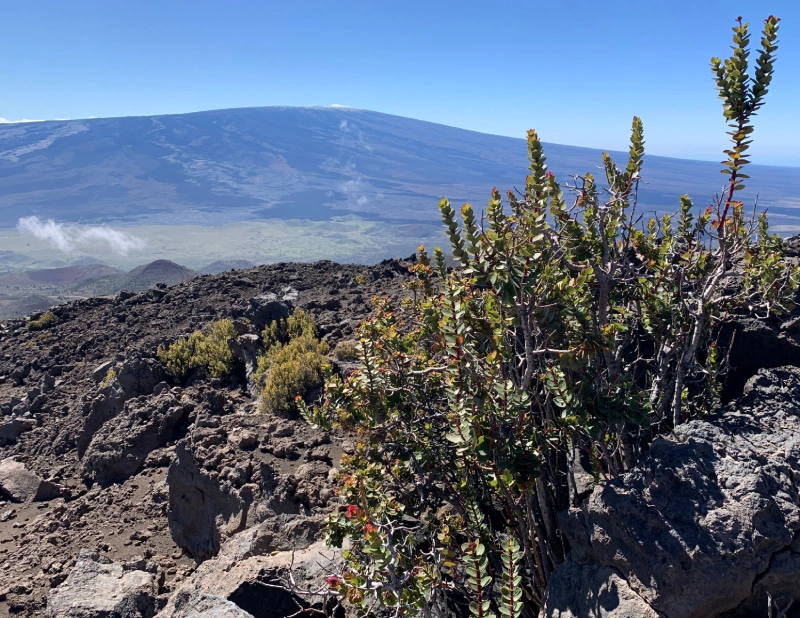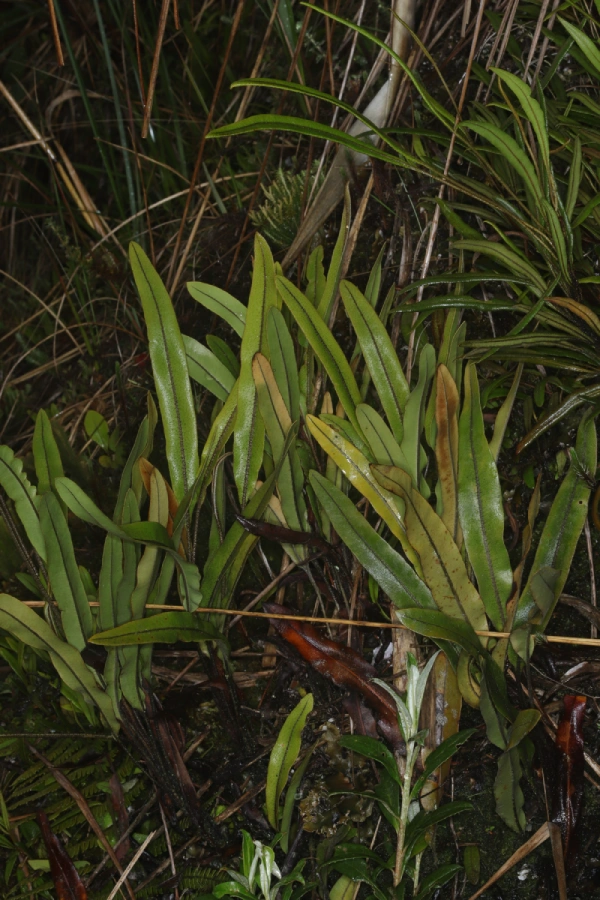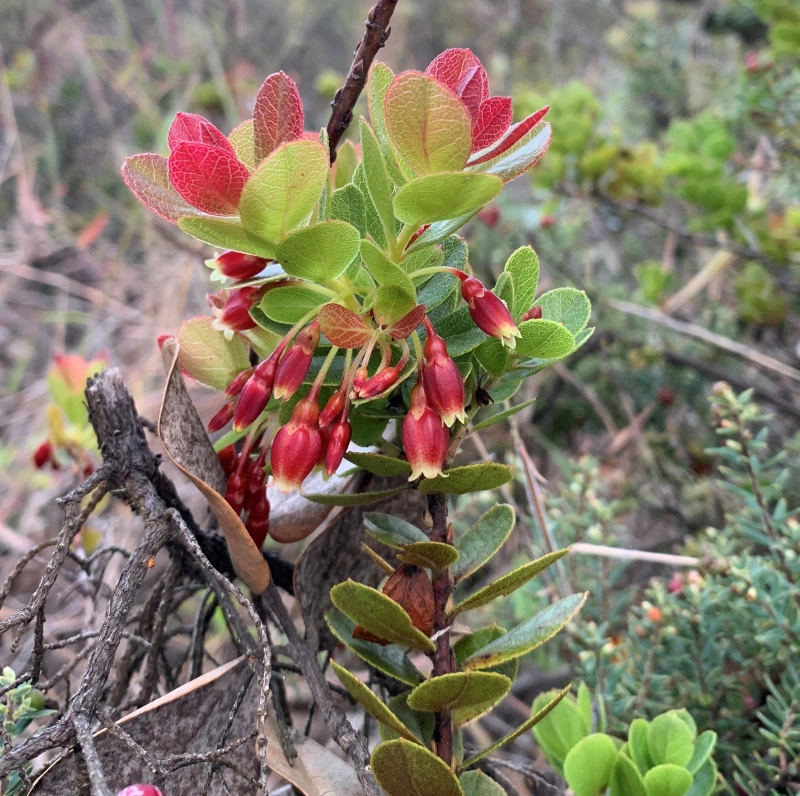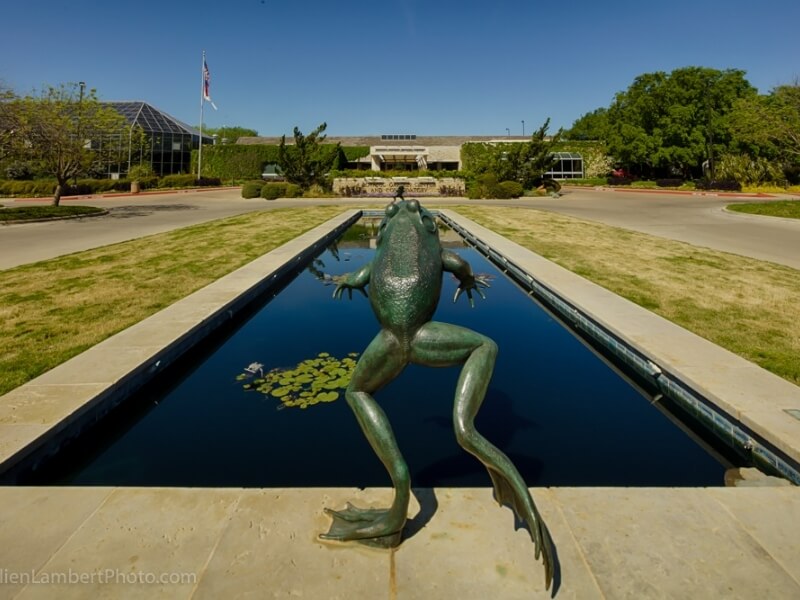Lunchtime Lecture: 2026 Staff Symposium
For the last installment of our 2026 Lunchtime Lecture series, staff of the Fort Worth Botanic Garden will be giving short presentations on projects they’ve been working on this year. This is a great way to catch up with multiple members of our staff about the amazing work that they do! Four speakers will present for 15 minutes each. Please find more information about their presentations below.
Systematics, evolution, and conservation of Hawaiian blueberries
Presented by Dr. Peter Fristch
Blueberries (genus Vaccinium) are common in the mountains of the Hawaiian Islands and are important as a food source for the native Hawaiian fauna like the Hawaiian Goose (nene). As part of a wider investigation into the systematics and evolution of blueberries worldwide, Dr. Fritsch and colleagues are exploring the origin, species diversification, and taxonomy of Hawaiian blueberries. Because the Hawaiian Islands are oceanic volcanoes that have never been connected to another landmass, blueberries, like all native Hawaiian plants, must have originated from outside of the islands. Dr. Fritsch will present results on the likely area and time of origin of Hawaiian blueberries, their dispersal, changes in their morphology across the island chain over time, and some surprising evidence of likely dispersal from Hawaii to other lands. The combined results showing that Hawaiian blueberry species diversity has been acutely underestimated have clear implications for conservation of these intriguing plants.
Phylogeny and Character Evolution in the Fern Clade Elaphoglossum sect. Lepidoglossa (Dryopteridaceae).
Presented by Lucia Vargas
Lucía Vargas will present the most comprehensive phylogenetic reconstruction of this diverse fern group to date, revealing new insights into their systematics, distribution, and character evolution.
Raising the TORCH: 6 years and 260,000+ specimens later
Presented by Tiana Rehman and Ashley Bales
For the past six years, the BRIT Philecology Herbarium has been imaging, transcribing, and georeferencing over 260,000 specimens from Texas and Oklahoma under the National Science Foundation Digitization TCN: American Crossroads: Digitizing the vascular flora of the south-central United States (TORCH) (Award #1902080). Collections staff will share more about the digitization journey, the importance of volunteer contributions, and where efforts will be focused going forward with the TORCH project.
Accelerating Texas State Conservation and Habitat Threat Assessment Using Deep Learning
Presented by Kay Hankins
Due to rapid declines in global plant biodiversity, evaluating extinction risk and identifying the threats primarily driving that risk is vital to informing species conservation status assessment, management, and planning. However, producing new status assessments, or re-evaluating those that are presently outdated, is both time-consuming and resource intensive. As a result, research aiming to develop and evaluate more efficient and reliable approaches to enable the rapid calculation of conservation status assessment criteria and generate binary or discrete categorical predictions of species extinction risk to help close this gap has been on the rise. Recent methodological advances in statistical machine learning and artificial intelligence techniques have been employed to this end internationally with promising results. For this pilot study, our team trained Deep Neural Networks using a subset of established plant species of greatest conservation need in Texas using a suite of bioclimatic and anthropogenic predictor variables and organismal life history traits as they correlate with the factors of extinction risk defined by NatureServe’s status assessment and ranking schema. The preliminary results of this study will seek to demonstrate our model’s efficacy to correctly classify species extinction risk and identify the threats most significantly driving that risk. This work will contribute to the development of a new web-based tool that will not only help to improve the overall pace and consistency of formal species status assessments, but also help to prioritize targets, identify threats and data-deficient species, and expedite state and national review processes.
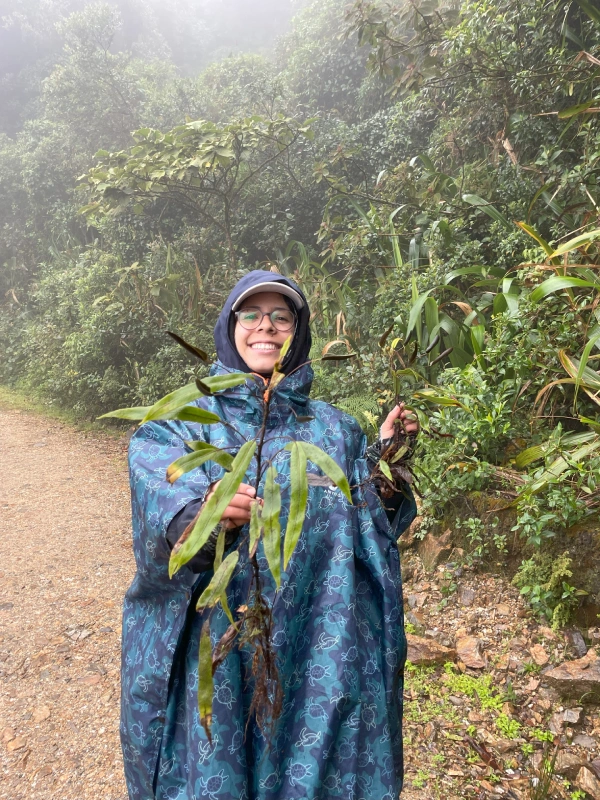
-
Date
Nov 11, 2025
- Time 12:00 PM - 1:00 PM
- Location Hybrid Seminar: BRIT Commons & Online
